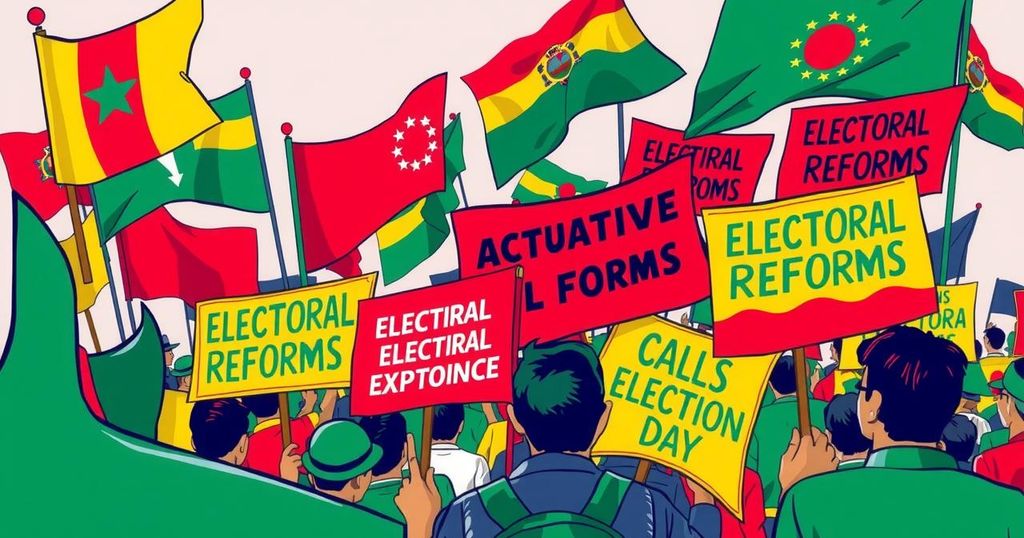Botswana’s New President Duma Boko Inaugurated Amid Hope for Change
Botswana’s new president, Duma Boko, was inaugurated following a historic electoral victory that ended the BDP’s 60-year reign. The UDC’s ambitious agenda aims to address unemployment, economic disparities, and establish a more diversified economy. The event highlights the active role of young voters and sets a hopeful tone for future governance in Botswana and the region.
Botswana celebrated the inauguration of its new president, Duma Boko, who was sworn in on Friday, marking a significant political shift in the country. The inauguration occurred just nine days after Boko’s Umbrella for Democratic Change (UDC) party decisively defeated the long-ruling Botswana Democratic Party (BDP), which had been in power for nearly 60 years. Speaking at the national stadium to a throng of supporters, Boko emphasized the importance of the recent electoral transition and declared this moment a “new political dawn” for Botswana. The UDC emerged victorious with 36 parliamentary seats compared to the BDP’s four, in a clear rejection of the BDP’s longstanding governance characterized by the management of significant diamond resources. Former President Mokgweetsi Masisi, who acknowledged his loss shortly after the elections, attended the event, during which Boko commended his predecessor’s commitment to democratic principles. He stated that Botswana has demonstrated to the world the efficacy of genuine democracy. Young voters played a crucial role, constituting about a third of the registered electorate, and expressed their desire for change owing to issues such as unemployment and economic disparities. Boko reaffirmed his commitment to transformation by unveiling an ambitious agenda focused on job creation, housing, and improving public utility services and healthcare. International figures present included Zimbabwe opposition leader Nelson Chamisa, who linked Botswana’s leadership change to a broader quest for freedom across Africa. Boko’s administration aims to stabilize partnerships in the diamond industry while working on diversifying the economy beyond diamonds. With a voter turnout of 80 percent, the inauguration was a testament to the citizens’ active engagement in shaping their governance, with Boko urging the populace to remain united in nation-building efforts.
Botswana has historically been a stable democracy in Southern Africa, with its governance structure evolving since it gained independence from Britain in 1966. The BDP has dominated the political landscape for decades but faced growing public dissatisfaction due to economic challenges, including a decline in diamond sales and perceptions of mismanagement under the former president. The recent elections resulted in a notable shift, with the UDC advocating for change and addressing pressing social issues, thereby reinvigorating democratic participation among the youth and the wider electorate. This election cycle represents a pivotal moment not just for Botswana but also serves as a potential catalyst for democratic movements across the region.
In conclusion, the inauguration of Duma Boko as Botswana’s new president signifies a critical turning point in the nation’s political landscape. The overwhelming support for the UDC reflects the citizens’ demand for change following years of BDP governance. Boko’s commitment to addressing economic inequalities, youth unemployment, and strengthening democratic principles positions Botswana potentially as a leader in transformative governance on the African continent.
Original Source: www.barrons.com




Post Comment